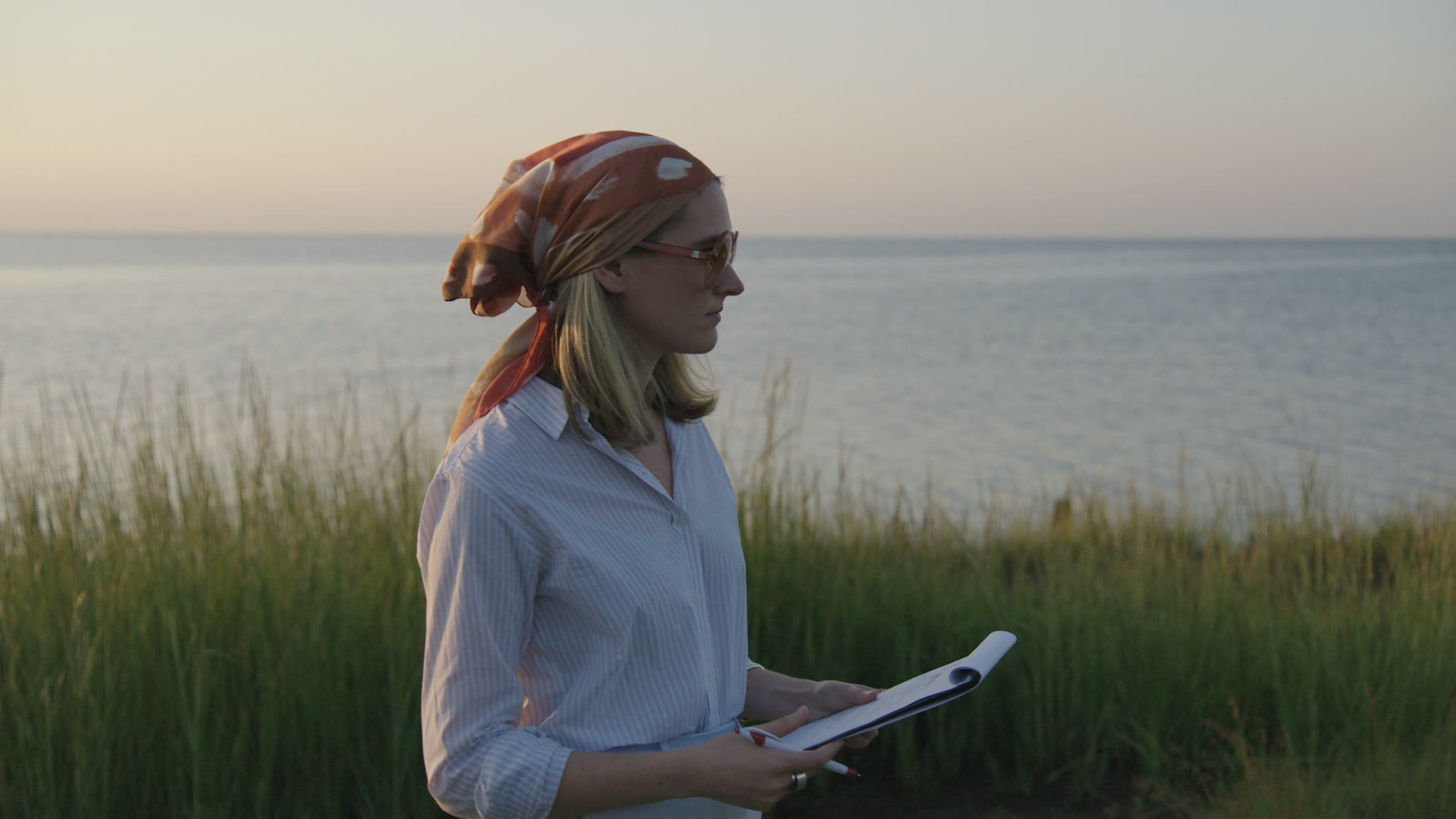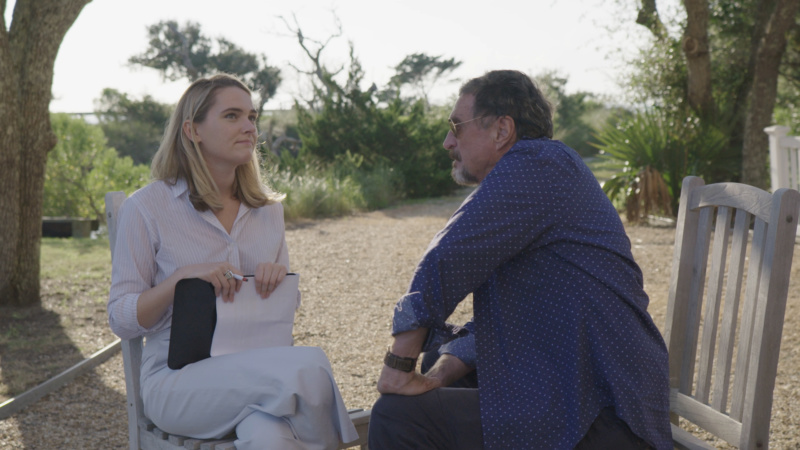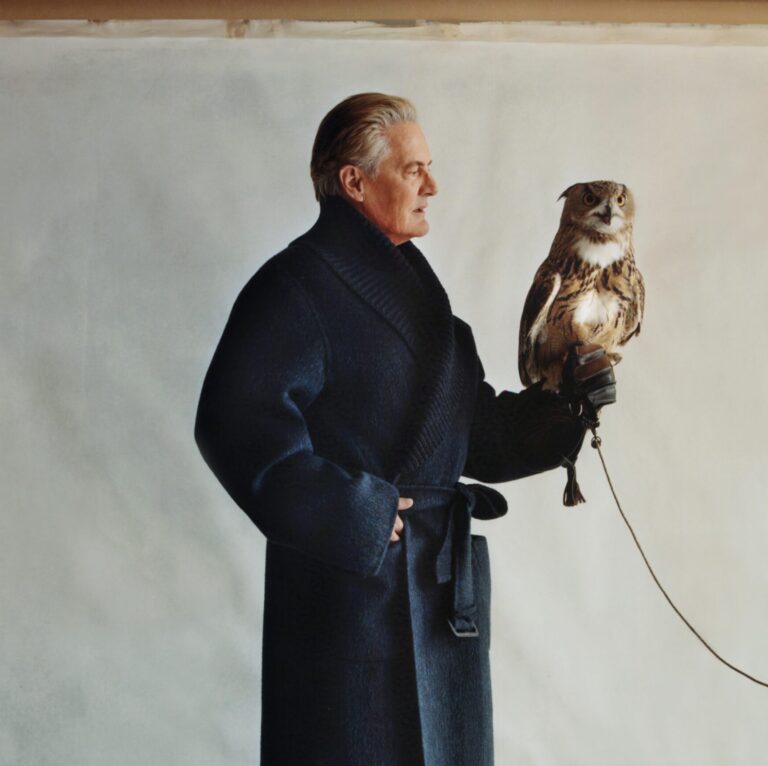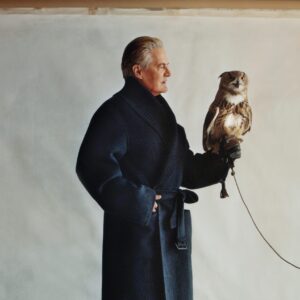
In the second episode of Jena Friedman’s Adult Swim special, Soft Focus, the comedian and writer invites several over-confident male gamers to participate in a Virtual Reality experience. The premise, of which they’re initially unaware: sitting silently while a man masturbates into a plant in front of them. It’s an unexpected set-up, but also a kind of experiment: in the notoriously misogynistic gaming world, how can male gamers really empathize with women? Friedman, characteristically sarcastic throughout, really wants to know.
Before putting on their headsets, the men are asked to share their opinions on “PC culture,” including the Me Too movement. “It’s partly the victim’s fault,” one says. Following the profoundly uncomfortable “game,” another wondered aloud—you’ll be heartened to know—if “that really happens in business settings. It must.” Friedman asks: “Did you learn anything?” “Nope,” he replies, hastily. Great.
I first saw Friedman on Conan; in early 2018, she did a short stand-up segment on Conan in which she suggests treating Nazis “the way you treat women”—at the very least, she deadpans, none of them will become president. Friedman was a field producer at The Daily Show with Jon Stewart, wrote for Late Show with David Letterman, and received a cease-and-desist from The New York Times for her video, Ted and Gracie, a spoof on the Times’ wedding videos—“Ted,” as in Ted Bundy. Adult Swim reached out to her after seeing the Ted and Gracie web series spinoff she produced, and invited her to create her own special for the channel. The humor of Soft Focus, at its heart a prank show, is dry, and dark, and cutting in its truthful absurdity. Friedman tackles campus rape, harassment, and generally awful men without letting anyone in on the joke; they reveal their own ickiness, which speaks for itself.
Ahead of her reboot of American Cunt, her 2016 stand-up social, at the Edinburgh Fringe Festival this summer, we spoke with Friedman about comedy as an art form and addressing painful subjects with humor.
How did you find your way to comedy? It’s one of my favorite art forms. I know you started with improv. It’s good to hear you say that. That’s cool—I feel like it’s an art form, too, but sometimes that gets lost. I remember a documentary featuring Janeane Garofalo; she was talking about the different types of comedy, as both entertainment and art. That’s always what my favorite comedians aspire to, I think.
I was studying anthropology, and for my senior thesis, you had to write about any subculture. You’re living in that world for a year. I was in Chicago and I wanted to write a paper on women in comedy. It was such an improv town; that’s how I got into improv.
I was studying anthropology in college, too. It leads you to so many different places. I know. There was a whole thing at the time—and there still is—with the participant-observer’s role. You study a history of anthropology, and it’s all these white guys traveling to Central and South America, ‘studying’ tribes. I wanted to study a culture I could fit in, so it wouldn’t feel as exploitative. That’s partly what led me to comedy, and improv specifically. I went to Improv Olympic and asked, “Can I pay to see shows, all-access, for a month.” They told me, “If you enroll in classes, you get to see all the shows you want for free.” I was like, “What now?”
I was there in 2004, I think before the big improv boom. My teachers had lived in Chicago for over a decade and were doing improv just for the love of it. I remember TJ Jagodowski, who’s a legend in Chicago, and—I don’t remember the story exactly; he may have been invited to audition for SNL. But he just wanted to stay in Chicago and be part of that scene. It was people who were really about the art. Improv can be so cheesy—it’s such a punchline now because everybody does it. But back then, stumbling upon that world, I had no idea you could be an adult and play make-believe and be encouraged to be on stage as your own writer, director, performer, playing at the height of your intelligence and creating something out of nothing. That’s an improv quote. It was the coolest world. I totally fell in love with comedy just by being there.
You’ve been described as a feminist comedian, something very intentional. But you’re just a feminist, as part of who you are; it’s not a conscious agenda. Here’s the thing: I think any female comedian—and I could be wrong—in our culture is a feminist, even if they’re performing anti-feminist comedy. Somebody who is, at this moment, stepping on stage, taking up space, saying what they think as a woman—in a way, that’s feminist. Because it’s equalizing. I think feminism is equality—people advocating equality—so anybody on the outside, disrupting the status quo: that is inherently political. I know it’s a bold statement to say that every female on stage is a feminist comedian. I don’t like to make blanket statements. But I feel like that’s a paper someone else could write!
What is it like to make your interview subjects in Soft Focus feel genuinely uncomfortable? Your humor is so deadpan and very Capricorn. How do you maintain your composure in that setting? I’ve been doing that kind of stuff for a pretty long time. I was at The Daily Show as a field producer, and even before that, I made interviews on my own. From doing it a lot, there’s like a deadening of you—when something is less novel, you can maintain composure. But the best moments in both of the shows are when I break—the term is breaking, when you just spontaneously laugh and you can’t help it. I’ve done that, in both segments of the show at certain points, and we have to cut around them.
There are always these moments when you realize, “This will work.” I remember I was at The Daily Show and producing a piece, and something happened that truly made me laugh. You do so much; the more you do, the less makes you laugh. So when you genuinely have that reaction, it’s such a good sign. It definitely happens. There were moments I couldn’t laugh. There was a segment we shot and never released in the first episode, where I was fully in character and I could not let myself laugh; the next day, I had a headache from working so hard to not laugh. It would’ve blown the whole segment.

In Soft Focus, you’re a bit of a reporter. Did working at The Daily Show help you learn to approach these sociopolitical issues with your humor? Yeah, so much. Jon [Stewart] was really a mentor to me. I was there his last three years, and the whole field department was just at the top of their game. There were so many talented people there. These things are so tricky, the edgier the subject. You’re always walking a line. I don’t always get it right, like anybody doing this stuff.
But to have had experience at that show and to see where he drew the line—it also taught me to tailor our segments in a recognizable way. I feel like it gives me license to be a little edgier if people recognize and trust the format, if that makes sense. The gamer segment was really tricky. I can’t believe it had such a positive reaction. I was really nervous about it, and I still am. But we produced it to the best of our ability; we got everyone’s consent. We made sure people knew the door was unlocked. I really wanted to make sure we did it right. I don’t want to be part of the problem.
That segment was so funny. Sometimes it’s the easiest way to explain these situations—dark humor, bluntly pointing it out. Somebody was like, “Are you modeling it off one particular guy?” And the sad thing is, no. That happens all the time. Even Les Moonves in the 1990s, when he was already at CBS—I think he jerked off in front of his doctor, when he was in his 50s. [Editor’s note: [Ed. note: Moonves forcefully kissed his doctor; it was one of many accusations against the media executive.]
This is so gross and ubitiquous and to be able to show it in a way that’s funny…People almost don’t believe it. The best moment for me, in that segment, was when that guy said to me, “A lot of women lie about this,” and I asked if he knew any women gamers and he was like: “…No.” I can’t yell this to people and have them actually listen. People just tune out. But if you show it to them, you realize they think this way because they’re not exposed to people, particularly women, who’ve experienced it. I feel it’s so much more impactful to show rather than tell. That was a goal and hopefully it was effective to the demographic watching.
A lot of people don’t know how to have this conversation. You’re suddenly accused of being ‘an angry woman.’ One of the guys said “I’m sure this happens to women.” The guy who said, “This must happen in business settings.” I know. And he supported Trump, and that was also really interesting. The day of the shoot, I thought I was going to get punched in the face. We didn’t really know those guys, and I was nervous. But after the fact, one of my female producers—Kaila Kuban, who’s an integral part of the show—turned to me and said, “Can we just do this? I know it might take a long time, because there are millions of gamers, but…”
With every different guy, it was like a half-hour play. We didn’t know how any of the segments would go. It’s so much improvisation, and you want to make sure they feel safe. It was the craziest experience. A lot went into that; we had a really good group of people to make that segment happen.
Did Adult Swim reach out to you to make the show happen? Yeah, they reached out to me about two years ago. I had a web series online in 2009 about a woman falling in love with a serial killer. It was kind of making fun of The New York Times wedding videos. We’d made our own: Ted and Gracie, as in Ted Bundy. We put it on YouTube and people found it—the term now is an Easter egg, but we didn’t know that then. We wanted people to think it was real, and it’s so obviously not real—but because some people thought it was, it went crazy viral. I got a cease and desist from The New York Times, but mostly because we took their logo.
When Adult Swim saw that, and some earlier videos I had made, they reached out and gave me the first special. But they didn’t know what they were getting. I didn’t go to them and say I wanted to do a political prank show. They just asked, “What do you want to do?” And I was like, “Make guys not hate us. Just make young men not hate us, that’s all. In a funny way?”










 in your life?
in your life?

